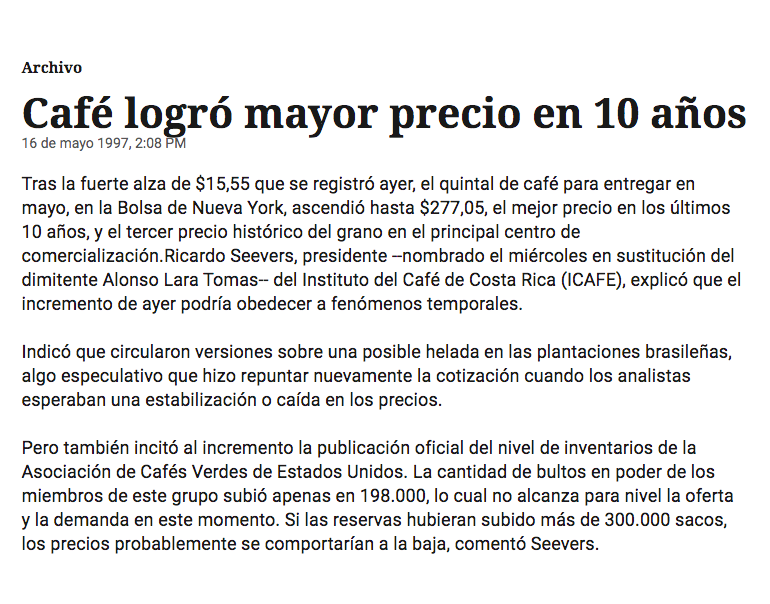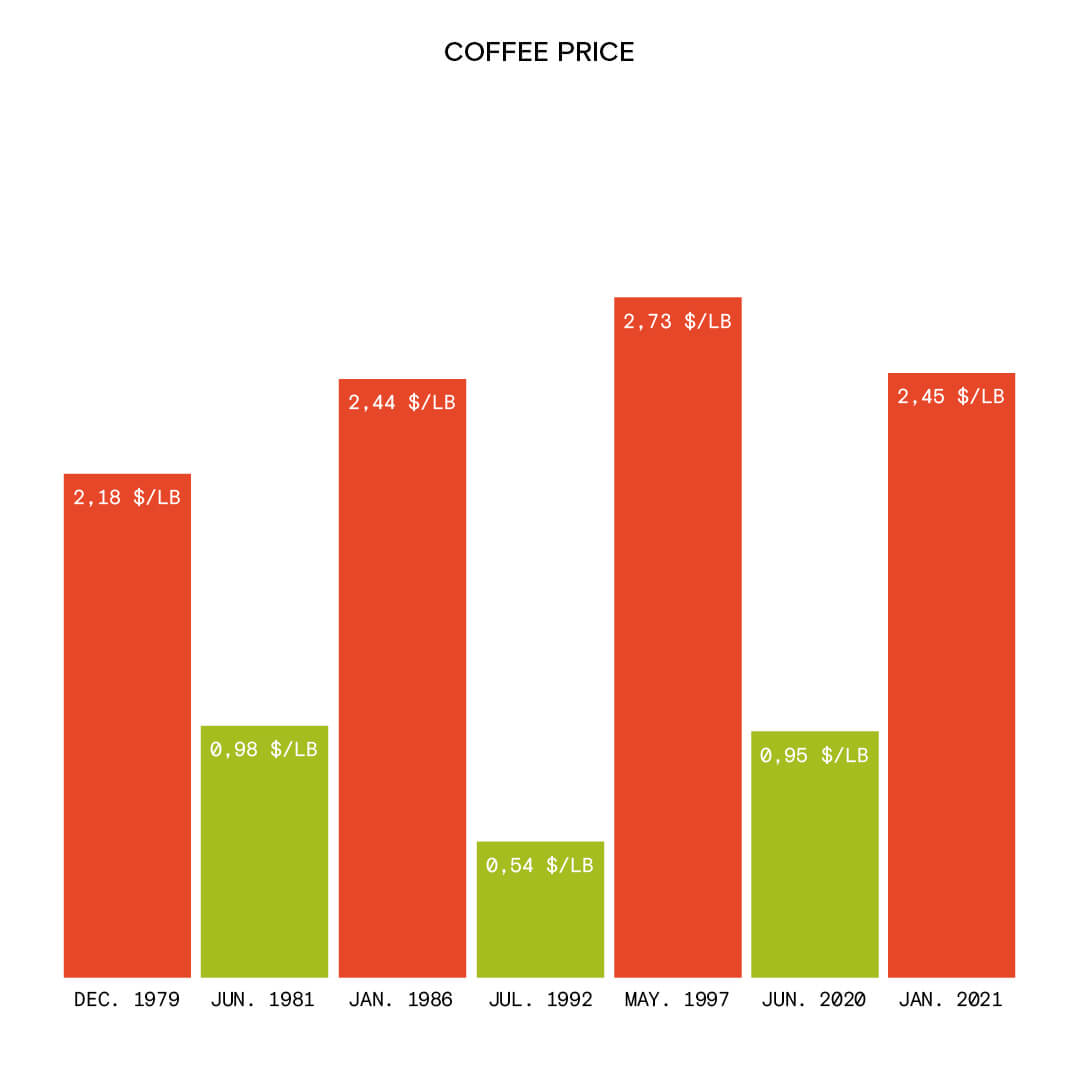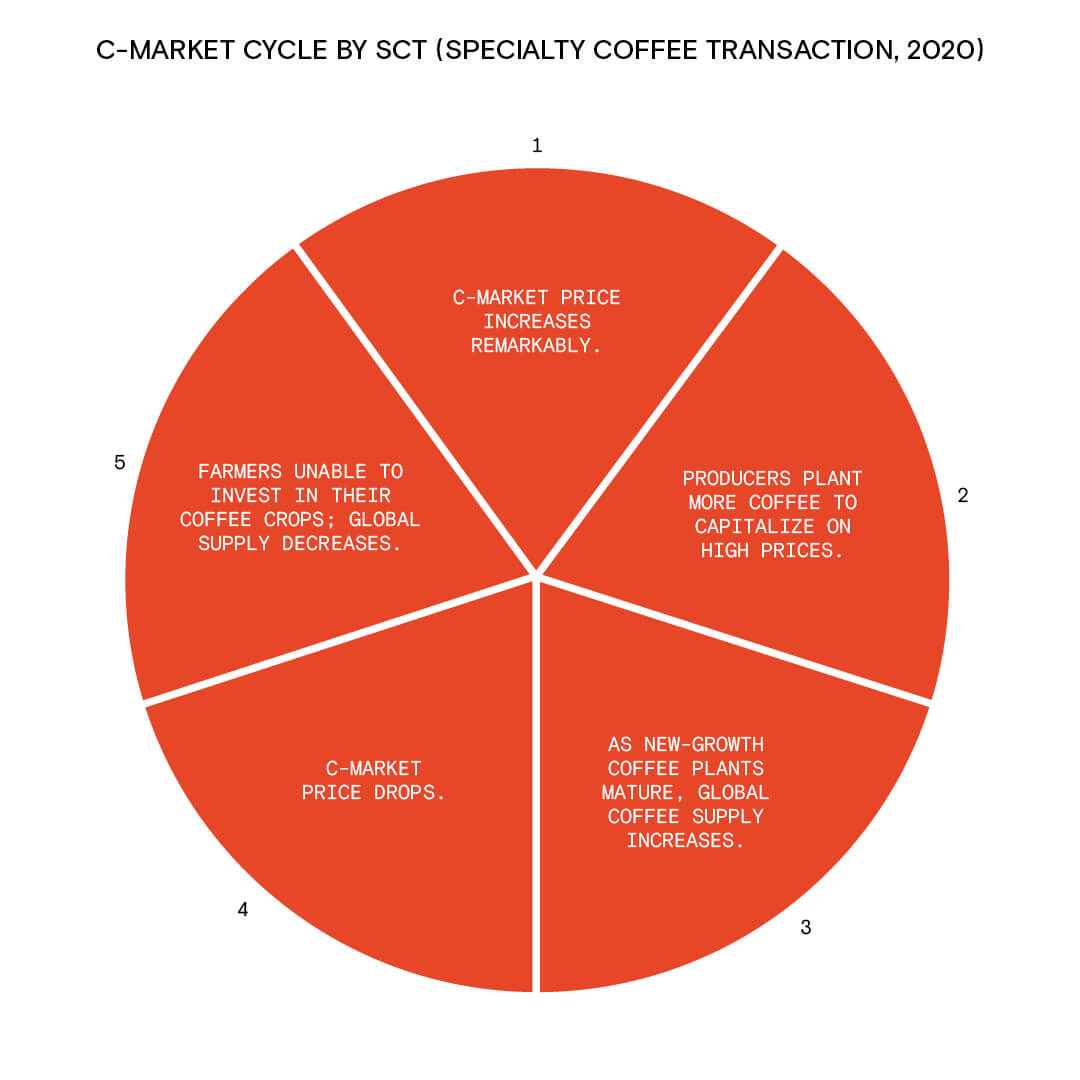As of January 9, 2022, the price of coffee on the stock exchange rose to $2.38/lb. A year earlier the price was $1.00/lb. How could the price of coffee have increased more than 150% in just one year?
One of the reasons behind the increase was the frosts in Brazil during July, where more than 9,500 coffee producers suffered losses between 4 and 11 million bags of coffee, between 8.2% and 22.4% of the production (Perfect Daily Grind, 30/07/21).
Coffee has a very volatile market price. In more than 30 years since coffee has indexed on the stock market, these extreme changes have happened several times.

In 1997, speculation about possible frosts, which by the way never happened, caused coffee to reach $2.73/lb. On the other hand, in 2001, the price of coffee fell sharply to $0.46/lb. This drop was associated with the “rapid expansion of new coffee crops in Vietnam and Brazil, coupled with a surplus of good quality crops, causing a surplus of coffee.” (Perfect Daily Grind, 10/10/18).

The C-Market price of coffee is a continuous loop of ups and downs, with high prices being short-lived and low prices lasting over time. The endless speculation is devastating for coffee producers, creating severe instability, preventing investments, and improvement in their quality of life.

At NOMAD we do not buy coffee based on the market price, we buy and pay for coffee based on its quality. Thanks to this philosophy, the rise of prices last year has hardly affected us since we pay a higher price for quality coffees, year after year. For example, in 2021 the price of our session espresso (Chambaku, washed from Colombia), with the best value per price ratio, was $2.45/lb, in 2022 the price increased slightly to $2.70/lb. Unlike the C-Market price, this increase in our purchase price will be stable year after year.
We hope that these comparisons and examples will be helpful for you to understand the big difference between commercial coffee, driven by speculation, and specialty coffee, which is driven by quality. There are many people whose exclusive livelihood comes from coffee harvesting, we have a moral obligation not to speculate with the fruit of their work.